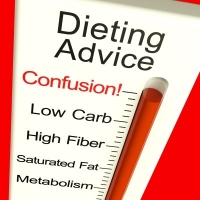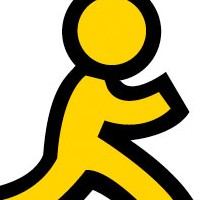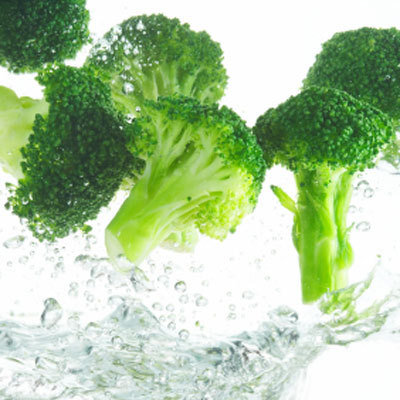Gastric Bypass Patients Succeed Eating High Protein Diet
The first rule for successful weight loss and weight maintenance after Weight Loss Surgery (WLS) is Protein First - that means eating protein for three daily meals, and protein must be 50 percent of food intake. Some bariatric centers advise as much as 70 grams of protein a day. The gastric bypass diet should be high-protein, low-carbohydrate and low-volume. This is what successful WLS patients will eat for the rest of their life if they wish to maintain weight loss after surgery.
Animal products are the most nutrient rich source of protein and include fish, poultry and meat. Dairy protein, including eggs, is another excellent source of protein. Nuts and legumes are also good sources of protein, but sometimes difficult for the bariatric patient to consume. Tofu is another remarkable good source of vegetable protein and there are many quality flavorful products on the market for making it easy to incorporate into the diet.
Science is proving that a protein rich diet will prompt weight loss and increase energy. The body contains over fifty-thousand different active proteins all made out of the same building blocks: amino acids. Amino acids are made of carbon, hydrogen, oxygen and nitrogen as well as sulfur, phosphorus and iron. Many diseases - including obesity - indicate an amino acid deficiency.
WLS patients do not have the luxury of eating high-carbohydrate foods. They must eat lean protein or they will get sick, anemic, and weary. Weight loss will cease if patients eat processed carbohydrates instead of lean protein. Dumping or vomiting may also result if patients do not eat lean protein for the first half of every meal.
The distinction must be made between high fat proteins and lean proteins. A gastric bypass patient cannot tolerate high fat proteins such as bacon, fatty beef or sausage products or greasy fried chicken: these foods cause nausea and vomiting. In fact, many WLS patients report even smelling high fat foods, such a fried chicken, makes them nauseous. In addition, these high fat protein rich items are contributors to obesity, clogged arteries and heart disease. High fat foods should be avoided by anyone wishing to control their weight.
Kaye Bailey ?2005 - All Rights Reserved
An award winning journalist and former newspaper editor Kaye Bailey brings expertise in writing and personal experience with gastric bypass surgery to EzineArticles.com. Having spent most of her life overweight Ms. Bailey is strongly empathetic toward the obese, particularly overweight children. This compassion compelled her to found the website http://www.livingafterwls.com, a fast-growing resource of information, understanding and support for the weight loss surgery community.
The LivingAfterWLS.com site is complimented with daily blog. The blog, http://livingafterwls.blogspot.com offers readers the chance to comment or leave feedback about fresh content added daily. This site contains success stories and recipes, general information and WLS inspired topics. Complementing the site is a monthly newsletter titled "You Have Arrived" available exclusively to people who subscribe through the website or the blog.
-
5 Easy Ways To Lose Weight Fast - Lose 20 lbs. Or More In 1 Month With These PROVEN Tips!
Today I would like to talk about 5 easy ways to lose weight fast. Read
-
The Culprit of Obesity in Children - Inactivity
It was bad enough hearing almost daily that obesity
-
Weight Loss Meal Replacement Shakes
With the obesity epidemic we are experiencing today in the Western Wor
-
Become Motivated To Lose Weight! Try This Fast Plan That Will Give You The Quick Results You Desire To Keep You On Track! - Ever Loss
CLICK HERE NOW to Download The EverLoss System and Start Losing 23 LBS
-
Self managed weight loss program - free diet plans for weight loss
You need to take off the belly fat due to your overweight. A D-I-Y
-
How To Maintain A Good Health? - Fitness Snacking And Mediterranean Diet
Now that the temperature rises and the summer is so close the new
- DON'T MISS
- The Diet Paradox
- Think Fat Will Always Be An Issue For You? Think Again! Get The Facts You Need To Finally Change Your Body Quickly! - Ever Loss
- African Mango Diet and Weight Loss Supplement - Tips to Select Pure and Original Model
- Female Flat Abs - How To Get Rid Of Midsection Fat by Spiking Your Metabolic Rate
- Does Eat Stop Eat Really Work-Eat Stop Eat Review
- Low Carb Diet
- Weight Loss - What a Drag, Or is It?
- A Weighty Issue: Does Soda Promote Weight Gain?
- IronFlower Fitness - Fitness Miami
- Essential Aspects to Understand about What Foods Burn Belly Fat




